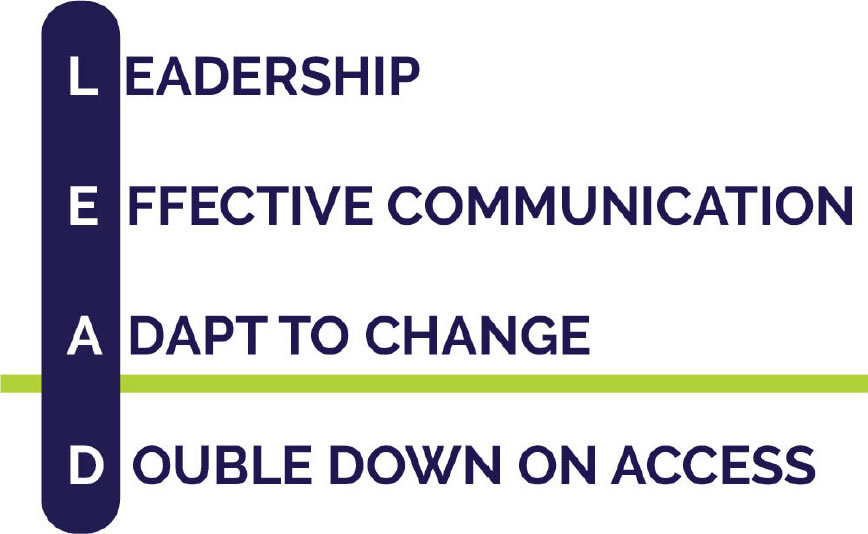It’s time to face the reality that there is more than one way of being productive (hybrid, in-person, remote) and that addressing workplace mental health is no longer an afterthought, but a business imperative. You workers are experiencing fear, stress, uncertainty, grief, and loss that are quite overwhelming, so increased support and finding new ways to lead are essential.
You and your team can accomplish a lot if you build a culture of respect and inclusion and sustain that culture. In other words, even in the climate of pandemic fear, anxiety and uncertainty, your organization can thrive.
The only thing stopping you is lamenting about the old ways and wishing things went back to “normal”. At the same time, adapting to a new future by accommodating workers with mental health challenges creates hope for the whole team.
Therefore today’s post, the third of a four-part LEAD series, focuses on adapting to change.

Adaptation is a good thing and here are four reasons why:
1. Respect Leads to Productivity:
Although work must get done, in these uncertain times adapting and setting reasonable expectations for everyone including those with mental health challenges sends a message of respect. When employees feel respect-ed, they are more likely to hit their goals.
2. It’s Not Up to You:
According to this Bloomberg study, 49% of millennials and Gen Z workers would rather quit their jobs if they found that employers were inflexible about remote work. So, adjusting to this kind of reality is vital for your organization.
3. Remote Workers Are Healthier:
High absence rates during seasonal COVID outbreaks or taking long mental health leaves can wreak havoc in your organization. But the fact is, remote workers stay healthier physically and mentally. So why not adapt to letting them decide for themselves how they want to work. Again, by adjusting to your employees’ needs, you are helping everyone thrive.
4. Diverse Teams Are More Productive:
Diverse teams perform 12% higher than non-diverse teams. Adapting to the inclusion of teams with different ages, ethnicities and geographies enables your organization to be more productive.
Of course, diversity without inclusion only leads to higher turnover. Inclusion is the glue that holds your organization together and it fosters the kind of loyalty that goes beyond the bottom line.
Our latest training “Respect in the Workplace Starts With Me” gives examples of how inclusion can foster sense of loyalty and respect for your team. To be notified of our next workshop date, sign up here: https://www.winningculturereset.com/join-newsletter/
As you can see, there are many moving pieces to the modern workplace puzzle. The more adaptive your leadership style is, the faster you will get your team to productivity and fulfillment.
If you put your energies into listening to your team’s needs and learning how to be an adaptive, empathetic leader, your organization can be a thriving place.








